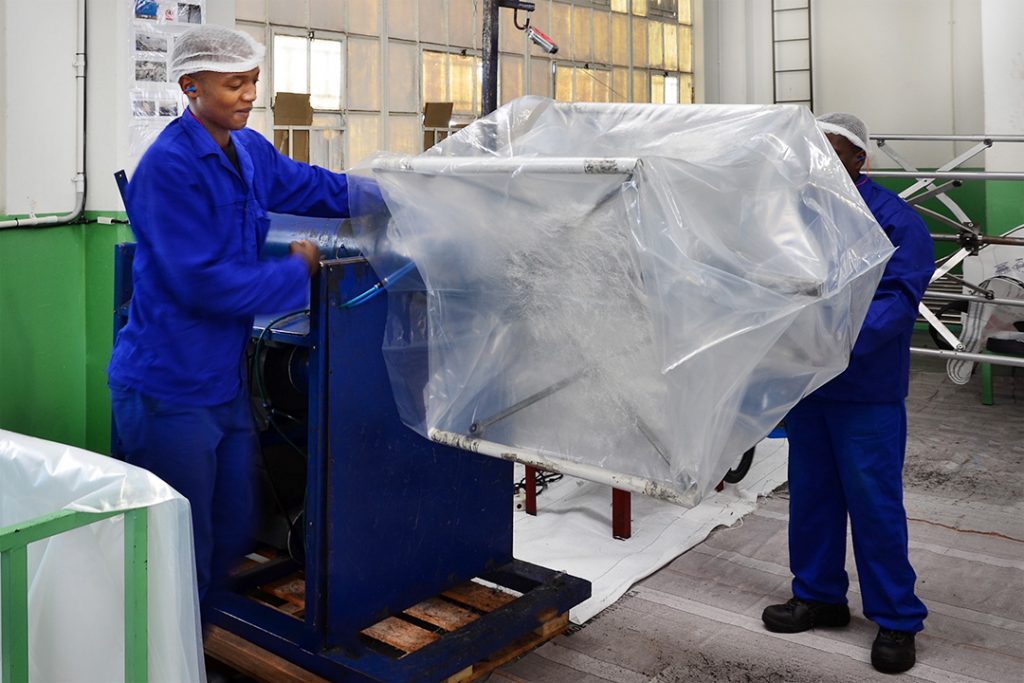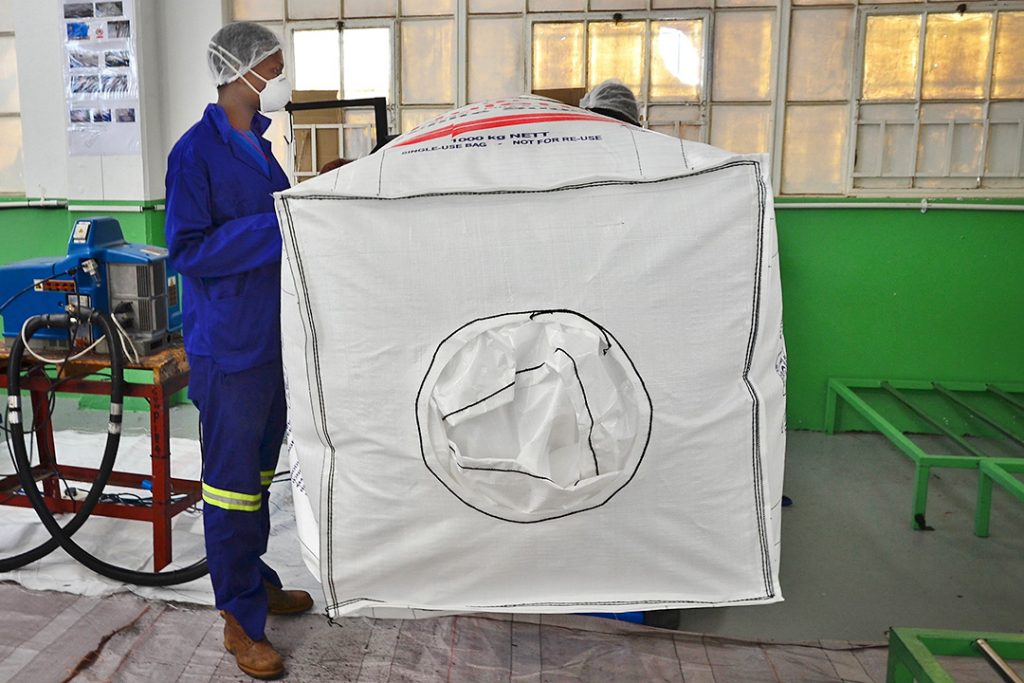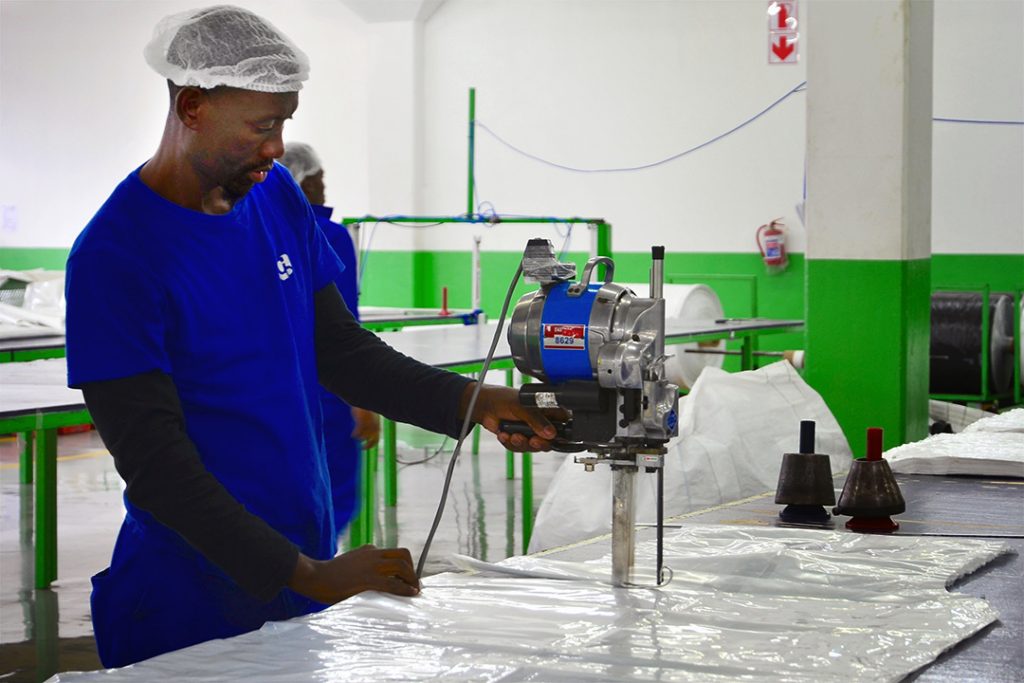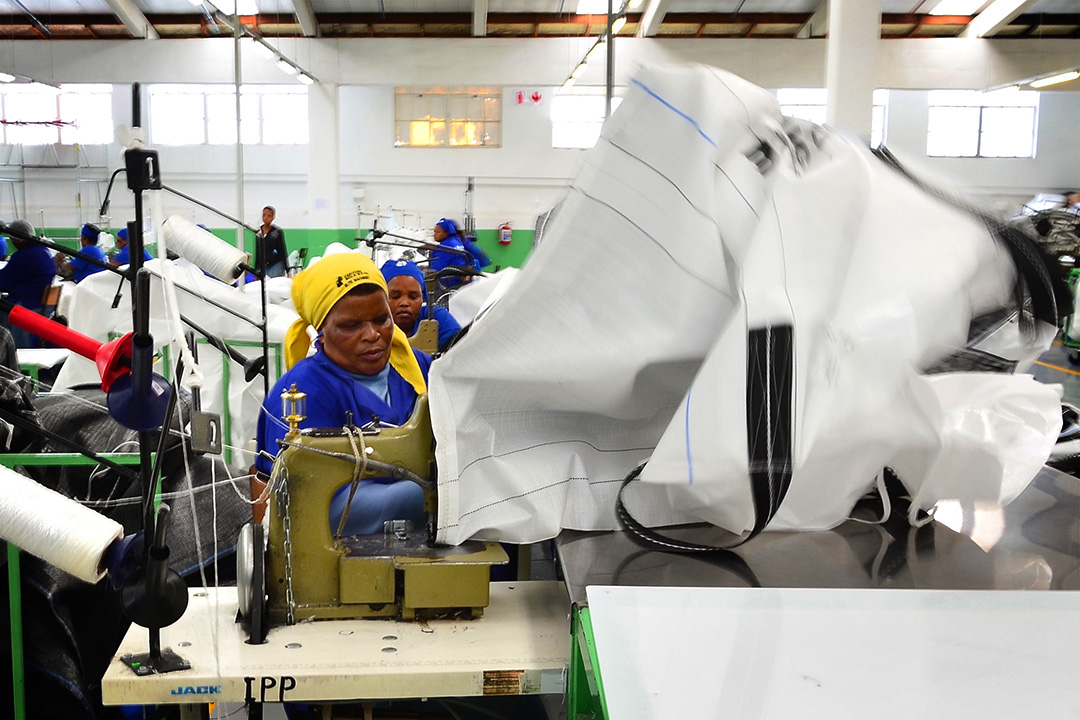Breathable bulk bags can be used by many different industries for the storage and transportation of goods. Bulk bags provide a durable and lightweight solution for a range of products such as grains, fertilizers and ore. Custom Bulk Bags is a leading supplier to all of these sectors and their expertise is highly sought after. As one of the largest manufacturers of bulk bags in Southern Africa, CBB has a solution for every customer.
Some powdered materials may get ruined when exposed to moisture, so having breathable packaging is essential. Air needs to circulate freely for such goods to avoid being ruined by moisture build-up. Breathable bulk bags ensure good ventilation for these products while retaining the strong and durable qualities needed from packaging.
Thick strands of polypropylene are woven together to create a bag that is flexible and resilient, while still allowing air to flow into and out of the bag. These bags may also be fitted with air vents in the fabric to ensure that goods are kept in excellent condition during shipping or storage.
Which goods need breathable bulk bags?
Any products or materials that need to be protected from dampness, mold or mildew need to be stored or transported in packaging that provides good air circulation. These items might include some of the following:
- Agriculture – cattle feed, wool, firewood, seeds.
- Mining – chalk, salt, minerals.
- Construction – sand, gravel, fiberglass, refractories (ceramic materials), pigments.
- Chemicals – fertilizer, dry chemical powder, pharmaceutical drugs.
- Food – nuts, rice, corn, grains, flour, beans, sugar.
By choosing breathable packaging, good air circulation will take place through the fabric of the bag and the product quality will be retained.

How to choose the right breathable bulk bag for your product?
Some items are more sensitive to moisture than others, so it is important to choose the correct type of bag. Certain water-soluble food items or chemicals are particularly at risk. Woven polypropylene is not waterproof, so for items that need extra protection, it is wise to consider including an inner splash-proof lining. Alternatively, for reusable bulk bags, removable linings can be fitted inside the bags and replaced as needed.
Certain goods, such as vegetables and firewood, require more ventilation than items such as sugar or flour. For these products, unlined bags are a more suitable choice. Open-top or bottom-vent bags can increase breathability, as well as ventilation strips running down the side of the bag. Some bulk bags include a flap at the top, which can be opened or closed according to whether more ventilation is required.
How can moisture build up inside an airtight sealed bag?
Sealing items inside an airtight container is not enough to prevent water vapour from getting inside. Unless the product has been vacuum-packed and all the air has been sucked out, it is still possible for moisture to develop inside the container.
Condensation happens when air temperature changes. This causes the air inside the packaging to cool and develop into water droplets, particularly when this air is humid, such as in coastal towns. Water vapour can cause the products to go soggy, moldy or even clump together into a hard mass.

How has breathable packaging changed over time?
Before the invention of polypropylene in the 1950s, breathable packaging was made out of paper, wood and cloth. These items posed major limitations on what could be transported and how long goods could stay in transit. None of these materials offered sufficient protection as they are not damp-resistant and are highly susceptible to wear and tear.
Polypropylene led to a packaging revolution, as bulk items could be shipped internationally at lower costs and with less risk of damage. Apart from the issues related to moisture, polypropylene also kept vermin and pests at bay. Rats and insects could easily enter packaging when it was made from natural fibers, such as paper and cloth.
What are the benefits of FIBC?
Flexible Intermediate Bulk Containers have improved international logistics due to a number of reasons. Custom Bulk Bags are incredibly lightweight but they can carry up to two tonnes of materials. This results in a very low ratio of packaging weight to product weight.
Bulk bags can be also folded when not in use, meaning that they can be easily stored and moved. Their design is such that they can be easily stacked, lifted, filled and emptied. Custom Bulk Bags gives customers the freedom to choose their preferred size and additional features, such as linings and flaps.
In addition, bulk bags are cost-effective to manufacture, and in some cases, it may not be necessary to use other transportation products like pallets. By reusing bulk bags, consumers can keep their costs even lower.

When choosing bulk bag packaging to store or transport your goods, consider both the consistency of your product, as well as how much water-proofing is required. It is possible to prevent rot and mildew by ensuring good airflow. Breathable bulk bags offer a strong and heavy-duty solution for the transportation and storage of water-sensitive goods. For more information about our bulk bags, please contact us today.
___
Custom Bulk Bags is a leading South African manufacturer of woven polypropylene bags for various industries, such as mining, chemicals and food. We are able to produce over 3.5-million bulk bags per year, keeping our customers in-stock at all times. Our bags adhere to the highest levels of quality as a result of our stringent in-house testing and quality control programmes.
Custom Bulk Bags holds ISO 9001 certification and we currently have a number of UN-certified designs. We are a Level 3 B-BBEE manufacturer and supplier and fall under the ownership structure of Deneb Investments Limited. For more information on our products, contact sales@custombulkbags.co.za. Follow us on Facebook for our latest news and industry insights.
